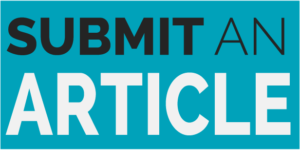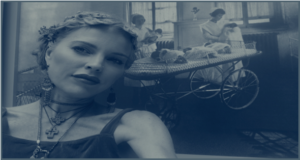Publication Information
ISSN: 2641-7049
Frequency: Continuous
Format: PDF and HTML
Versions: Online (Open Access)
Year first Published: 2018
Language: English
| Journal Menu |
| Editorial Board |
| Reviewer Board |
| Articles |
| Open Access |
| Special Issue Proposals |
| Guidelines for Authors |
| Guidelines for Editors |
| Guidelines for Reviewers |
| Membership |
| Fee and Guidelines |
 |
Female Psyche after Trauma: Sexual Assault Survivor Morbidity & Mortality: Neuroplasticity & (AI); Enhancing Clinical Outcomes
Rose-Marie Boylan*
Health, Economics, Patient-reported Outcomes
https://www.institutebioethicspatientaccesstolife.org
Montreal, Toronto, Canada
Received Date: August 3, 2019; Accepted Date: August 7, 2019; Published Date: August 16, 2019
*Corresponding author: Rose-Marie Boylan, Health, Economics & Patient Reported Outcomes Montreal, Toronto, Canada.
Email: rosemarieboylan@me.com
Citation: Boylan RM (2019) Female Psyche after Trauma: Sexual Assault Survivor Morbidity & Mortality: Neuroplasticity& (AI); Enhancing Clinical Outcomes. Jr Neuro Psych and Brain Res: JNPBR-129
 According to RAINN.org (2017), “every 98 seconds an American is sexually assaulted. When broken down one in 4 girls and one in six boys before the age of 18 will experience some form of sexual abuse. One in five women and one in 16 men are sexually assaulted in college.” (National Sexual Violence Resource Center, 2015). Sexual assault is underreported, with only 63% reported to authorities. (NSVRC, 2015)
According to RAINN.org (2017), “every 98 seconds an American is sexually assaulted. When broken down one in 4 girls and one in six boys before the age of 18 will experience some form of sexual abuse. One in five women and one in 16 men are sexually assaulted in college.” (National Sexual Violence Resource Center, 2015). Sexual assault is underreported, with only 63% reported to authorities. (NSVRC, 2015)
Clinical, Social, Civil & Political Interventions-Decision-Making
"The United States Institute of Medicine released a 1999 report called "To Err is Human". It indicated between 44,000-98,000 deaths occurred in the U.S. every year due to medical error. Part of this problem likely relates to low “Proximity of effect” in bioethics which distances the decision-maker from the lived reality of the patient and/or subject.
Artificial intelligence (AI), health economics, health outcomes (patient reported outcomes) combined with Bioethics & Jane Loevinger's principles of ego development have the potential to train artificial neural networks (ANNs) as statistical learning, deep learning models which emulate the most objective assessment for a survivor’s wellbeing.
Following trauma, the mind can be modified with neuroplasticity to design a better clinical outcome for victims of violence, turning them into survivors not victims. Substances that cloud judgment leading to more violence need to be evaluated based on subjective interests, stigma and questions of social conditions & risk of more violence due to clouding of the pre-frontal cortex and higher executive functioning of the brain in females. Research suggests the use of interventions that facilitate neuroplasticity with a person with trauma, can develop the mind & brain neuroplasticity to a higher level. The highest levels of emotional, cognitive and moral intelligence.
By weaving together bioinformatics and patterns of recognition using neuroplasticity modalities and artificial neural networks with artificial intelligence (AI) for clinical decision-making we can reduce adverse events, improve disability indexes, economic development & outcomes in mind health. We discuss the best minds and how we can preserve them through objective decision-analytic tools & bioinformatics using AI technology. Specifically focused on the female psyche.
Rose-Marie Boylan, BSc. M.A. has worked across 10 of the largest & mid-sized pharmaceutical companies for over 27 years. She is a healthcare professional by trade. She has specialized in patient access to medicines, patient reported outcomes, health & economics, policy influence for patient self-sovereignty. In parallel, Rose-Marie has researched for over 13 years social, civil and political cost-consequence & cost-benefit of psychiatry, transpersonal psychology & human flourishing in violence survivors. This included a Master’s research on the best brains of leaders & humans for social progress reviewing over 76 years of research.
She completed her Masters in 2009 in Leadership Studies with research on the optimum levels that humans can attain in a life time for self-actualization, human potential, economic development & human flourishing. Leveraging the research of Abraham Maslow & Jane Loevinger on ego development she developed a model which defines mind health vs. psychopathologies. Which when combined with bioinformatics by applying artificial intelligence (machine learning/deep learning) to diagnostic and clinical decision-making there is potential to improve morbidity & reduce mortality in survivors of sexual, economic, structural and physical violence. This research demonstrates that after trauma we can create the best brains from the female psyche or male psyche for social progress & economic development through post-traumatic growth.